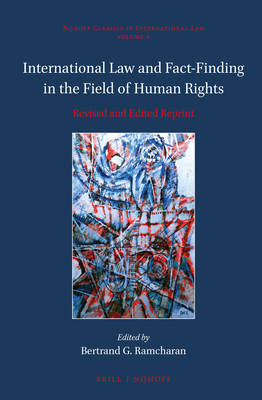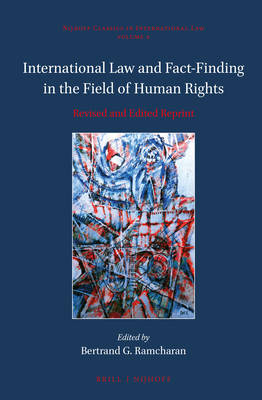
- Retrait gratuit dans votre magasin Club
- 7.000.000 titres dans notre catalogue
- Payer en toute sécurité
- Toujours un magasin près de chez vous
- Retrait gratuit dans votre magasin Club
- 7.000.0000 titres dans notre catalogue
- Payer en toute sécurité
- Toujours un magasin près de chez vous
International Law and Fact-Finding in the Field of Human Rights
Revised and Edited Reprint
341,95 €
+ 683 points
Description
Human rights fact-finding is at the heart of efforts for the international protection of human rights. Gross violations of human rights are still a tragic feature of life in many parts of the world and governments responsible for them go to great lengths to hide them from detection and to avoid international scrutiny. When scrutiny does occur, governments frequently attack fact-finding reports to avoid further processes and the need to accept responsibility for the violations perpetrated. For this and for many other reasons, it is crucial that careful attention is paid to the substantive and methodological integrity of fact-finding reports. At the time of its original publication in 1982, this ground-breaking volume sought to identify fundamental norms and standards which could help to guarantee the quality and integrity of fact-finding reports. A lot has happened in human rights fact-finding since then. There are numerous human rights fact-finding rapporteurs within the United Nations system and within regional organizations; there are many international commissions of inquiry; international criminal tribunals have helped clarify various areas of the law; NGOs are extremely active in the field. Despite, or perhaps because of these developments, controversies over fact-finding reports are very common. A source of reference to help fact-finders strengthen their work is sorely needed, and this volume remains of inestimable value in that regard. The guidance it provides has stood the test of time and is as valuable today as it was when it was first advanced, arguably it is more valuable today when the need for objective standards of human rights fact-finding has become of urgent importance in a world in which the political ground is shifting visibly. The current volume is a re-issued version of the original text, with new introductory materials.
Spécifications
Parties prenantes
- Editeur:
Contenu
- Nombre de pages :
- 294
- Langue:
- Anglais
- Collection :
- Tome:
- n° 2
Caractéristiques
- EAN:
- 9789004276871
- Date de parution :
- 29-09-14
- Format:
- Livre relié
- Format numérique:
- Genaaid
- Dimensions :
- 160 mm x 239 mm
- Poids :
- 589 g

Les avis
Nous publions uniquement les avis qui respectent les conditions requises. Consultez nos conditions pour les avis.





